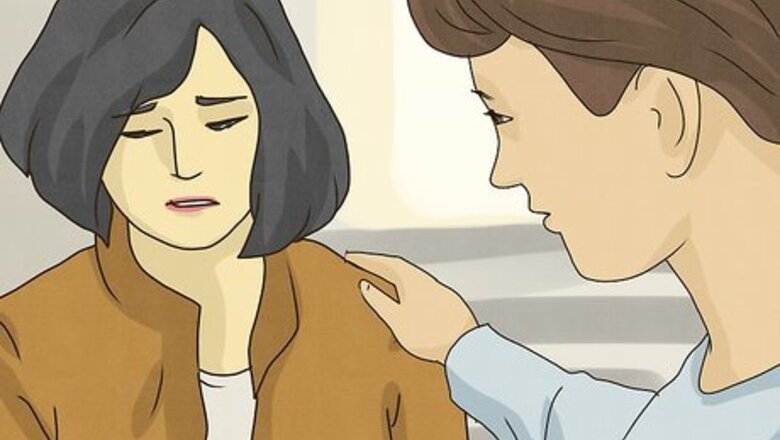
views
- Build up your support system and make a plan before you end a toxic relationship. Then, make a clean break and cut all contact with your ex.
- Take time to care for and nurture yourself after you end the relationship. Give yourself time to heal before you jump back into another relationship.
- If you feel like you're constantly walking on eggshells, can't do anything right, and feel anxious all the time, you're likely in a toxic relationship.
Leaving a Toxic Relationship
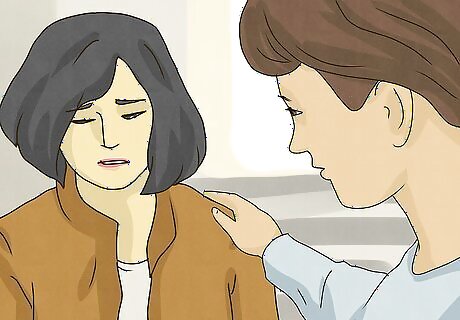
Talk to people you love and trust about your situation. If you've come to suspect that you're in a toxic relationship, talk to trusted friends and family members about the situation. They can affirm and validate your feelings and help you consider your next steps. Let them know that you're thinking about ending the relationship and that you'll need some help and support to follow through. This can be difficult if your partner has been keeping you from hanging out or talking to your friends very much. You might feel as though you've alienated them, but your true friends will always have your back. If there's been distance between you, they'll likely understand once you explain the situation. Just let them know that it has nothing to do with your feelings for them and that you recognize you're in a toxic relationship that needs to end.
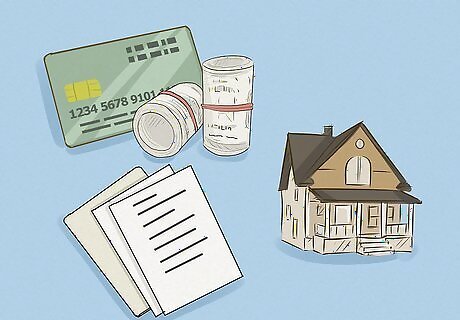
Pull together any resources you need to make a clean break. When you're leaving a toxic relationship, it's typically best not to draw things out—but it's not always easy to just up and leave, especially if you're living with your partner or have kids with them. Think about what you'll need to get out and move on with your life and make sure everything you need is in place before you pull the plug on the relationship. Relationship counselor Jason Polk recommends choosing a friend to take the lead in terms of getting you the support you need, "whether that would be financial support or whatever... so that you know [when] you leave you will be supported." This is especially important if you're concerned that your partner might get violent if you end the relationship. You want to make sure that you can get out safely and that you won't have to interact with them again.
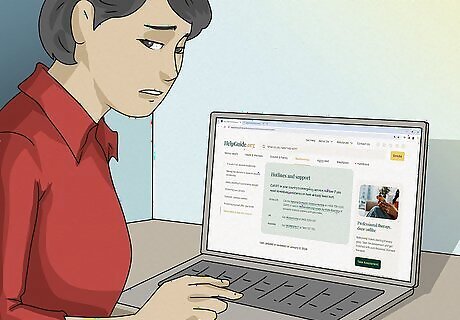
Seek professional help as needed. Depending on your situation, you might want to get a counselor, therapist, or even law enforcement involved. There are tons of resources in every community that will help keep you safe and secure as you make your way out of a toxic relationship. Even if your partner isn't abusive, you can still access these resources just to err on the side of caution. Therapist Jay Reid notes that "you may be mistaken not to seek out external resources," including domestic violence hotlines, if you're afraid your partner might become violent or abusive.

Let your partner know that you are ending the relationship. Choose a time when both you and your partner are relatively calm. Sit down with your partner in a private place with no distractions and tell them on no uncertain terms that you think it's best for both of you to end the relationship. Be clear that you're done and you don't intend to have any further contact with them. If you're concerned that your partner might threaten you or get violent, you might want to have this conversation in a more public place, such as a park. You'll feel safer if there are other people around. You don't have to go into tremendous detail here. For example, you could simply say, "Our relationship isn't working for me. I've thought it through, and I want to end it."
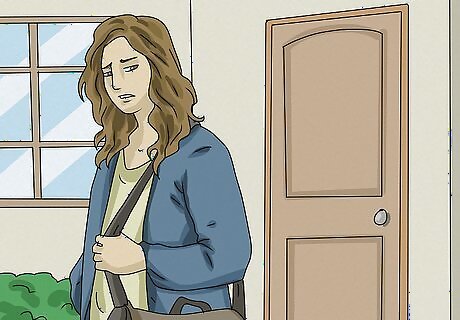
Remove yourself from the situation immediately. A toxic person might not accept the relationship or might try to get you back. Immediately after you have your conversation and tell them that the relationship is over, be ready to pack up and leave. If you lived together, this might require a little effort or you might need to get friends to come over and help. When you're leaving a relationship like this, keep in mind that you might not be able to take everything with you. Your safety and well-being are more important than stuff. Take what you need and what you can't live without—don't worry about the rest. Stuff can be replaced, but you can't be replaced.
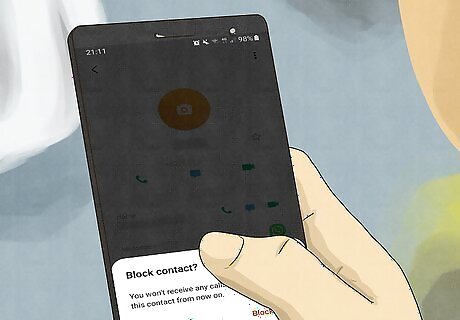
Cut off all contact with your ex-partner. Block your ex-partner on your phone and on social media. If they try to contact you, ignore them. If the two of you frequently cross paths during the day, you might also want to adjust your daily habits so that you don't bump into them. Let your friends and family know that you're going full no-contact as well. Your ex might try to reach out to you through them. If you're concerned that your ex might start trying to hunt you down or follow you around, you might also consider taking out a restraining order. This step can be difficult if you and your ex have children together because you can't completely cut off contact. Just let them know that you'll only talk to them when necessary for co-parenting.
Recovering from a Toxic Relationship
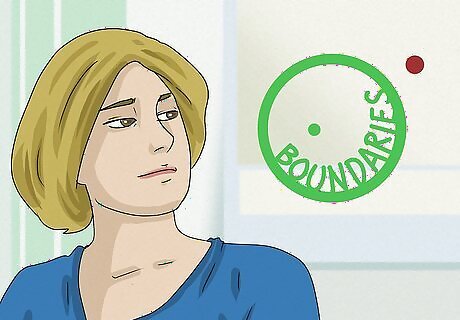
Re-establish or reinforce your boundaries. A toxic person typically pushes your boundaries and it's natural for many of them to fall by the wayside over the course of a toxic relationship. Spend some time reflecting and journaling so you can identify your boundaries and what's actually okay for you in a relationship. Psychotherapist Kelli Miller notes that "oftentimes, in relationships, we slide a lot to please our partner.... So knowing your own personal boundaries, and what feels right to you, is super important." This can take some time, so be patient with yourself. Depending on how long your relationship was, it could take a lot of effort to rebuild yourself.
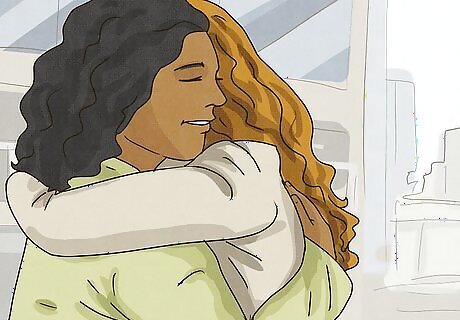
Lean on family and friends for emotional support. The people who love and care about you can help you move on after you've ended a toxic relationship. They'll make sure that you feel safe and hold you accountable for staying away from your ex for good. If you still feel as though you're in love with your ex even though you know they were toxic for you, your friends and family can remind you of the reasons you left in the first place. Their support will help strengthen you so that you can get through this.

Pursue hobbies and personal interests that bring you joy. Perhaps you had hobbies that you enjoyed before you got into the relationship that you dropped—pick them back up and see if they still make your heart sing. You might also try something new that you've always wanted to try and see how that works. The important thing is that you're keeping busy and doing things that make you feel good about yourself. If you enjoy travel, consider taking a mini-vacation to a town you've never been before. The change of scenery and break in routine can really shake things up and get you on the path to healing.

Build a self-care practice that nurtures you. You likely poured a lot of yourself into that toxic relationship, trying your hardest to make it work. Now is the time to give all that love and compassion to yourself. Nurture your mind, body, and soul by engaging in self-care rituals and practices. For example, you might try yoga to soothe your soul and ease your stress. Taking a warm bath with scented oil or bubbles or going for a walk out in nature are other ways to nourish your soul and reconnect with yourself. You might also start a journal to write and reflect on your thoughts and feelings as you decompress after the breakup and return to yourself.

Discuss your relationship patterns with a therapist. Talk therapy is so valuable in the aftermath of a toxic relationship. A therapist can help you understand how you managed to get into a toxic relationship in the first place and identify red flags so you'll know what to avoid in the future. A therapist can also help you work through any childhood trauma and past issues that might be causing you to fall into toxic relationships.

Take time to heal before you open yourself up to a new relationship. Therapist Jay Reid notes that "establishing a routine and a sense of predictability and all of that contributes to a sense of safety" that will allow you to heal.
Signs You're in a Toxic Relationship
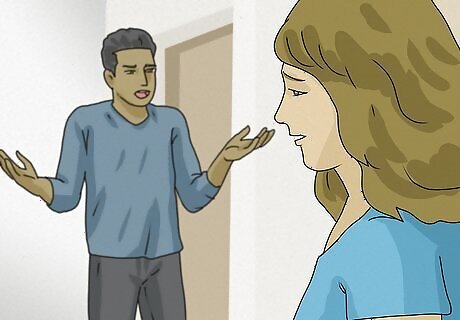
You feel like you're constantly walking on eggshells. If you're constantly watching what you say and do for fear that your partner will lash out at you, that's a good sign that you're in a toxic relationship. You might also feel as though no matter what you do, your partner will inevitably find some excuse to be upset or angry with you. Living with this level of tension and constant vigilance can really do a number on your mental health. The stress that you're dealing with can lead to physical health problems as well.
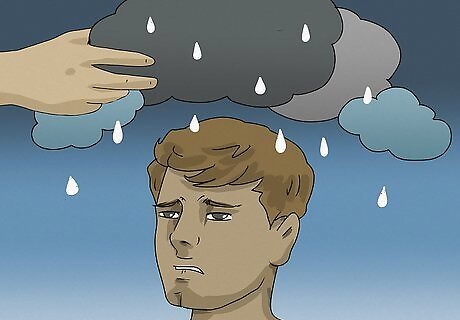
You consistently feel unhappy or anxious. If you're in a toxic relationship, you've likely noticed that the times when you're happy have become few and far between. You might feel as though your partner or your relationship is a dark cloud that constantly hangs over everything, threatening even moments that should be calm and blissful. You might also feel as though whenever anything good happens, your partner is always going to come up with some way either to ruin the good moment or make you feel bad about it.
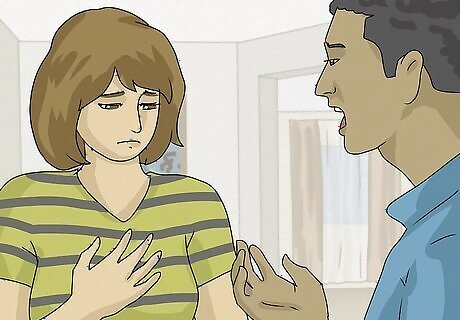
You feel as though you have to sacrifice for the good of the relationship. When you're in a relationship with a toxic person, they tend to make everything about them. That means that whenever your needs or wants conflict with theirs, you're expected to sacrifice so that they can get their way. Your partner likely treats your wants and needs as secondary to their own. Your partner might also tell you that you're being selfish whenever you attempt to assert your needs or set boundaries.

You are plagued with self-doubt and feel like you are being judged. If your partner is toxic, they likely believe they need to put you down to feel better about themselves. Any time you disagree with them, they'll be quick to point out how wrong you are. They'll likely also make you feel as though you can't do anything right or that nothing you do will ever be good enough for them. Toxic partners can also use this tactic to make you feel trapped in the relationship. They'll make it seem as though you're lucky to have them and no one else would be interested in being in a relationship with you. Relationship counselor Jason Polk notes that a toxic partner will often "gaslight you and make you feel bad or stupid for bringing up any issue." This can make you seriously question your understanding of specific events or the relationship as a whole.

You don't believe your partner respects you or your boundaries. Toxic partners don't like boundaries and tend to whittle away at them until there's nothing left. They need to be in control in the relationship and your boundaries mean they can't have absolute control. They likely also make you feel guilty for even having boundaries. They might tell you that it's unfair of you to deny them something that they want.




















Comments
0 comment